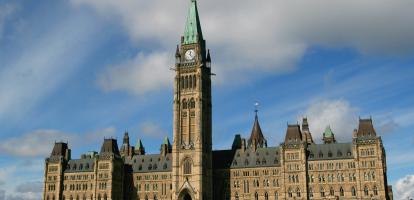A new NHL season has arrived – notably with the addition of the Seattle Kraken as the league’s 32nd franchise. The emergence of another American team in a league that only has seven Canadian ones, however, begs the question: What would it take for Canada to secure another NHL franchise? Will it ever happen? The answer requires examining the prospect of financial success.
A first core factor is market size and consumer demand. Having a large enough population with a passion for the sport is key to ensuring that there are not only enough viewers at home to satisfy TV advertisers, but that home arena seats can be filled every game night. Attending a professional sports event is expensive, so relatively high income levels are required. Hence, cities and regions with a large and growing population will be better positioned to offer continuing support to their franchise. Corporate sponsorship and corporate boxes are also important for revenue, so a sufficient number of head offices in the region is a valuable indicator.
Attracting a franchise also requires an appropriate NHL-quality building, in an appropriate location. Who should pay for such a building? Based on hard economic criteria, financing the construction of an NHL-quality arena is seldom a high spending priority for local or regional governments. Ideally, sufficient private investment would be attracted to finance a new arena or refurbish an existing facility. However, this is a spoiled market where taxpayers have often ended up footing the bill, even though success in landing a franchise is not assured. Taxpayers in Quebec City and Hamilton, Ont., have both paid for a new building without securing an NHL team.
The other key business factor is an ownership group with very deep pockets. An expansion fee would likely exceed US$600-million, and the NHL would have to find the proposed ownership group acceptable. Finding acceptable owners with deep pockets could be challenging, especially if the group sees financial performance as a priority. And while it is possible that an existing U.S.-based NHL franchise could move to Canada, the NHL has tried hard to avoid franchise movement unless absolutely necessary – such as when failing Atlanta-based franchises moved to Calgary in 1980 and then to Winnipeg in 2011.
It is also important to note that generating local economic benefits cannot be the key reason for a location to pursue an NHL franchise. Pro sports are all about mass entertainment driven by fan passion, not GDP. They generally have only a limited continuing impact on the local economy, beyond job creation in the start-up period, the immediate GDP impact of arena construction, or continuing franchise revenues from outside the region, such as U.S. broadcast revenues or visiting spectators. An NHL franchise can generate more than $100-million in annual revenue and sustain many jobs, but this represents a tiny share of overall local GDP and employment – similar to any other business of a comparable size.
When all these factors are considered, a second team in Southern Ontario is the most likely option, since the region offers a large and affluent market with a large appetite for sports. However, there are numerous unknowns, starting with identifying acceptable ownership and an arena. Another obstacle is possible “territorial rights” and a related fee for the Toronto Maple Leafs and perhaps the Buffalo Sabres. Also, given the undeniable fan loyalty toward the Leafs, there is the question of whether enough fans in the region would embrace a second team.
Quebec City is the other realistic option. But it is a small market, similar in size to that of Winnipeg’s, with middle-class incomes and a limited number of head offices to buy corporate boxes. It has a new arena financed by taxpayers, but the high expected franchise fee and need for an acceptable owner with deep pockets are high hurdles to clear. In the end, Quebec City would likely continue to be a used as a stalking horse by the NHL to keep expansion fees high for other bidders.
So will Canada ever succeed in attracting an eighth NHL team? It’s doubtful, according to the business economics. So hockey fans, enjoy your favourite existing Canadian NHL team. Welcome the Kraken as a new rival, particularly for the Canucks. Things aren’t likely to change any time soon.
Glen Hodgson is a Senior Fellow at the C.D. Howe Institute.





